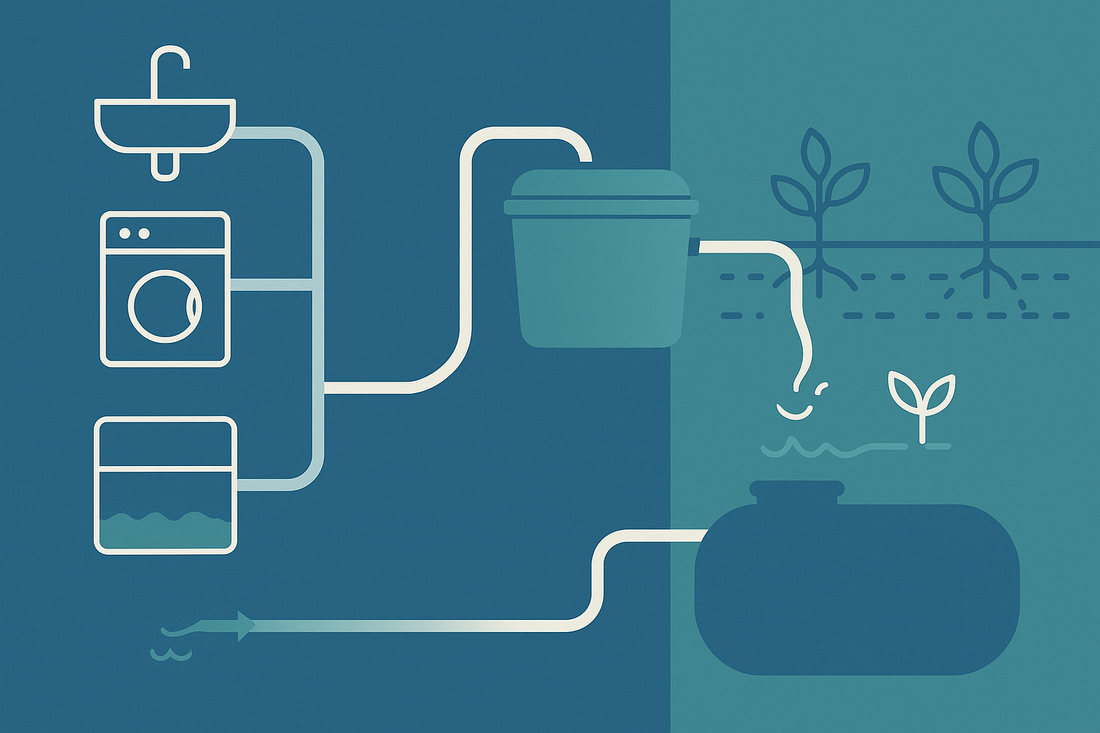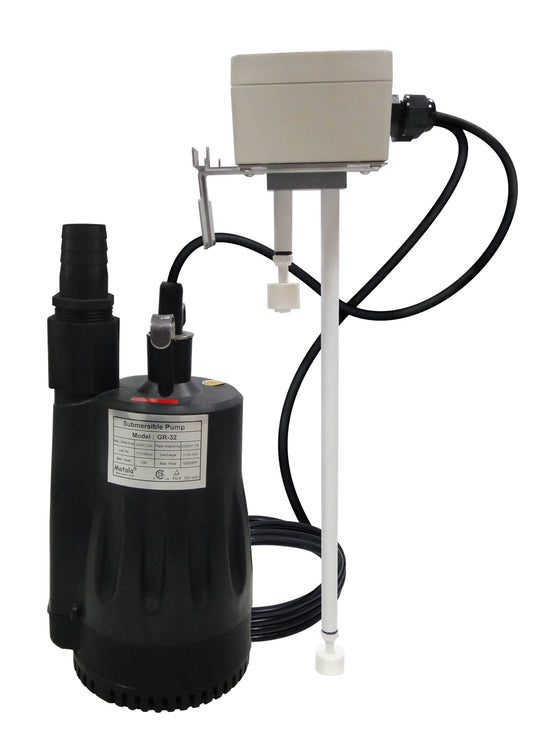
Can Grey Water Bypass the Septic Tank?
Sam WilhoitWhat Homeowners Need to Know About Legal Grey Water Dispersion
Short Version: Diverting grey water — like laundry water, bath water, and sink water — away from your septic system and into a separate tank or underground dispersion field can conserve thousands of gallons of water each year and extend the life of your drain field. However, local grey water law, plumbing code, and environmental impact guidelines will determine if and how you can legally set up grey water lines. Always check state and county rules before starting.
What Is Gray Water Diversion?
Gray water is the wastewater from your bathroom sink, bath, shower, washing machine, or laundry water. It does not include black water from toilets, kitchen sinks, or any water in contact with human waste or animal waste. Most residential systems separate gray water lines from black water, often using a ball valve to divert flows to a grey water tank or mulch basin for irrigation.
In an average house, all combined wastewater typically flows into a single septic tank and then out to the leach field (also called a drain field or septic field). But with grey water plumbing, you can redirect greywater users — like the bath from time to time or washer machine discharge — to a separate tank, surge tanks, or beds with water flowing beneath mulch or gravel.

Where and When Is Grey Water Diversion Allowed?
Grey water code and rules differ dramatically across the United States. Some states, such as California and Arizona, have clear rules supporting approaches for greywater reuse, allowing systems that divert laundry water, bathroom sink, and bath water from septic tanks. In arid climates or regions with high annual water demand, grey water reuse is often encouraged to reduce stress on the water table and to support sustainable landscaping.
Permitted States:
States with arid locations, where the average water demand is high, often allow grey water plumbing for irrigation efficiency. Systems must meet setback requirements from bodies of water and drinking water sources and must not let wastewater in contact with toilet waste or floor drain water reach natural waters.
Prohibited or Restricted States:
Many states — especially those with shallow water tables, high risk of drinking water contamination, or where city sewer connections are standard — prohibit the use of grey water systems or enforce strict grey water rules.
Local Variations:
Even in states with friendly greywater code, city or county building departments may have unique restrictions regarding surge tanks, mulch-filled basins, filter fabric, and the use of greywater for irrigating flower beds, medicinal plants, or apple trees. Never use grey water for water on veggies (edible root crops), to avoid direct contact with food.
Key Considerations for Your Grey Water System
System Design:
Use a grey water tank or Aqua2use-filtered greywater unit, and route grey water lines from the washing machine, bathroom sink, or bath. Avoid connecting the kitchen sink, which is classified as black water due to food and grease contamination.
Filtration:
Prevent clogging of underground beds by using filter fabric or blank filter units. Maintain the system regularly — wear rubber gloves for filter cleaning, and avoid funky water by flushing the system from time to time.
Cold Climates:
In cold climates, bury pipes and tanks below the frost line to prevent freezing. Bunkers for water storage or surge tanks may help stabilize flow.
Maintenance:
Clean filters regularly and inspect for leaks. Watch for squeaky hardwood floors or basement floor moisture — these may signal problems.
Legal Compliance:
Check for required permits, especially for residential systems in single-family homes or a huge house, and ensure compliance with grey water law, including setbacks from wells, the septic field, and bodies of water.
Benefits & Challenges
Benefits
-
Reduces load on septic systems and leach fields
Diverting washer discharge or bath water reduces the amount of water reaching your septic field, increasing the system’s lifespan. -
Conserves water
The 79-565 Water Research Foundation notes that average households can cut annual water demand significantly by reusing clothes washing machines’ water for irrigation. -
Supports irrigation
Grey water application to mulch basins or branched drain systems can support beautiful wetland plants and acid-loving plants in arid climates.
Challenges
-
Regulatory risk
Grey water misinformation and common mistakes — like failing to meet greywater code or releasing water above ground — can lead to fines. -
System failure
Without proper surge tanks, filter maintenance, or biological wastewater treatment, clogging or foul odors can occur. -
Health and safety
Never allow direct contact between grey water and people or pets, and keep water away from edible crops to avoid any risk of human waste contamination.
Best Practices & Resources
- Install ball valves to control the flow of water between black water and grey water lines, and use grey water books, videos for greywater, and state-approved designs to avoid mistakes.
- Maintain separate tanks for black water (toilets, kitchen) and grey water (bathroom, laundry).
- Avoid overloading systems by monitoring the amounts of water saved and the irrigation demand of your landscaping.
- Use Aqua2use-filtered greywater for maximum safety and compliance.

FAQ
Is water from the kitchen sink considered grey water?
No, kitchen sink water is classified as black water due to grease and contact with food or animal waste.
Can I use laundry water for irrigating flower beds?
Yes, in most areas with approved systems, provided you follow greywater code and avoid direct contact with edible crops.
Do I need a separate tank for grey water?
Often yes — a grey water tank or surge tanks are recommended for best results and compliance.
What is the environmental impact of reusing grey water?
Properly installed systems lower water table pressure, reduce the annual water demand on municipal sources, and improve irrigation efficiency.
Can I connect my grey water system to the city sewer?
No, grey water systems are meant for on-site reuse — mixing with city sewer or black water tanks is not permitted.








